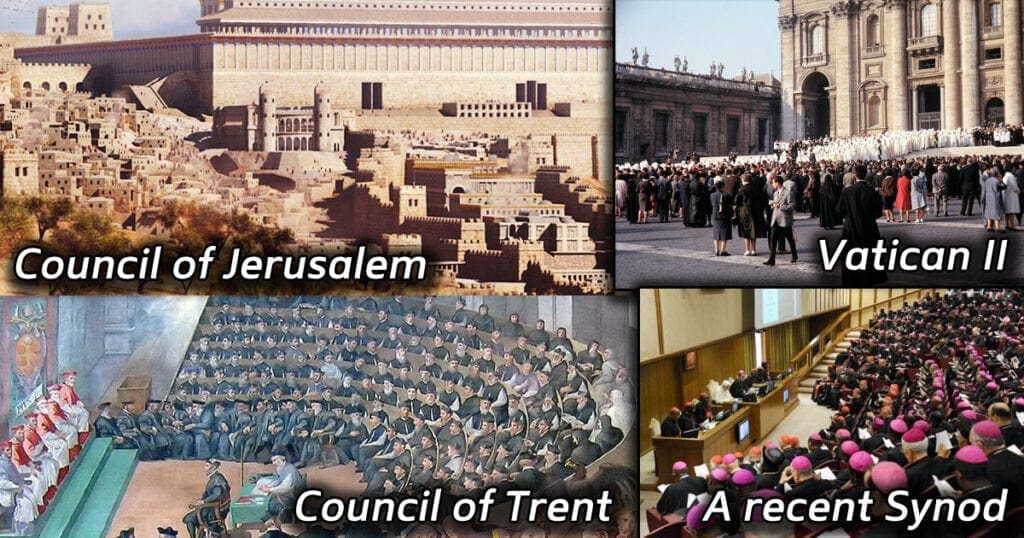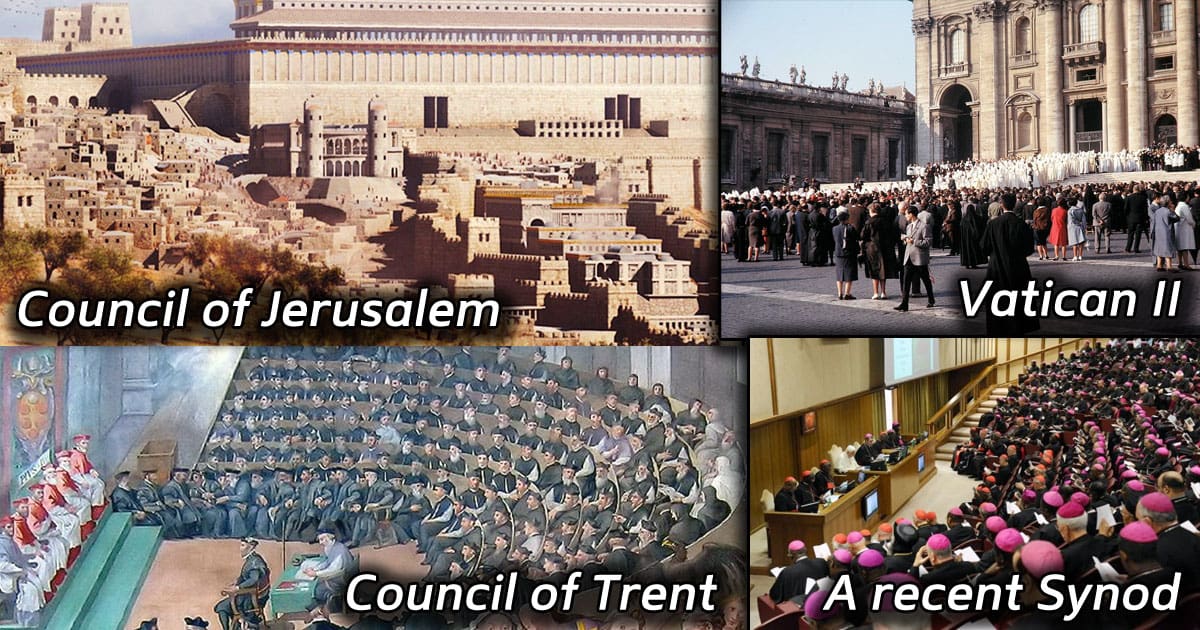What is the largest conversation in the world?
Does the Guinness Book of Records have an award for the largest and longest conversation in the world? If it did, it would probably single out Pope Francis as the most significant discussion leader ever.
In 2019, Pope Francis set in motion a three-year process to explore what is on the minds and in the hearts of 1.3 billion Catholics. The logistics of such a conversation boggle the mind!

Perspective
Pope Francis walks in the footsteps of St. John XXIII. Over 60 years ago, Good Pope John caught the world by surprise. He convened almost 3,000 Bishops for a discussion of the Church in the modern world. He coined a word that people then had difficulty understanding. “Aggiornamento” was roughly translated “Updating.”
Well over a century ago, Pope Leo XIII tried to get Catholics the world over to face “the new things” (Rerum Novarum) that were happening in the late 19th century.
All these efforts have their roots in the First Council of Jerusalem some 30 years after the Resurrection of Jesus. Already they faced polarizing issues of dietary laws rooted in the holy law of Moses. Did people have to become Jewish before they became Christian? How should religious leaders accept these followers of this “new” way of being God’s people?
Back to the Future Today
The watchword “new things” became “Agorniamento” in the mid-20th century. Today we hear “Synodality”
The world of today is no longer neatly divided into Jewish or Greek culture. We have experienced unprecedented growth since the time of the Industrial Revolution. The digital age has brought with it changes unimaginable even just 20 years ago.
I think what Pope Francis is asking us today might be summed up as “Stop – Look – Listen”.
New questions have arisen.
We must think more deeply about Jesus’ saying not to put new wine into old wineskins.
How would Paul say today… there is neither Jew nor Greek, male nor female, slave nor free? He learned the hard way that those he thought departed from the holy law of Moses were fulfilling the deeper meaning of “I will be your God and you my people!”
Back to basics!
St. Vincent was on to something when he committed himself to following Jesus.
God in Jesus showed us God forgives us even when we put his son to a hideous death.
Vincent quietly rejected the rigorism of his day.
He saw how the individual piety of his day seemed unaware that Jesus himself said we should care especially for the least of our sisters and brothers.
What did Jesus mean when after washing the feet of his followers, he pointedly asked them, “do you understand what I have done.” “Do this in memory of me… Wash one another’s feet!”
Vincent was fond of saying let us love God, but let it be with the strength of our arms and sweat of our brows. He lived, “Whatever you do to the least of these, you do to me.”
Does that mean worshipping only with those who look like us, speak in the Aramaic of the Last Supper?
Vincent placed a priority on activating the laity of his day.
Pope Francis sees us at an inflection point
He asks us to stop, look and listen to what Jesus’ words mean today.
The official handbook for this worldwide discussion offers more than 30 questions to explore and who needs to be at the table.
Of course, each of us has our burning questions and thinks we already know the answers.
But maybe the Holy Spirit has a bigger view!
Do we have the courage to see what questions we might not be asking and who is not being listened to?
Originally posted on Vincentian Mindwalk
Tags:







0 Comments